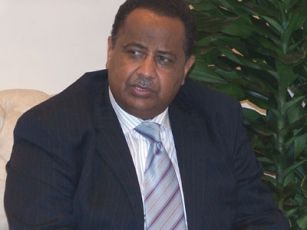NCP raps SPLM’s officials for backing south Sudan secession
November 13, 2010 (KHARTOUM) – The governing National Congress Party (NCP) in northern Sudan has lashed out at “secessionist officials” within its counterpart in the south for advocating full independence of the region in a plebiscite due in January 9 2011, accusing them of executing agendas of foreign powers.

Ghandour, whose statements were reported by the pro-government news service Sudan Media Center, further warned that “secessionist” SPLM officials had preempted the outcome of the vote and abandoned the CPA by overtly calling for secession.
The statements of the NCP official appear to be in response to statements made earlier this week by the top official of south Sudan’s sector at the Sudan People’s Liberation Movement (SPLM), Anne Itto, who declared that the SPLM’s southern sector would encourage people to vote for secession if it what they want.
“Since unity has not been made attractive during the six year of interim period, we will not stop what our people wants. We will promote what they want. If they need separation we, will promote that because we are following the people,” Itto told Sudan Tribune on December 11.
The referendum, for which nearly three million voters have registered so far, marks the final phase of the Comprehensive Peace Agreement (CPA) which in 2005 ended two decades of north-south war. The great majority of southerners are believed to want the full independence of their own nation, say most observers.
He further accused some SPLM officials of falling under the sway of incentives offered by the “Zionist lobby” and the extreme American right to separate the south.
Ghandour called on the international community to seriously consider the impact of the security situation in south Sudan on neighboring countries and the dangers of increased tribal conflicts on Nile Basin countries.
(ST)
